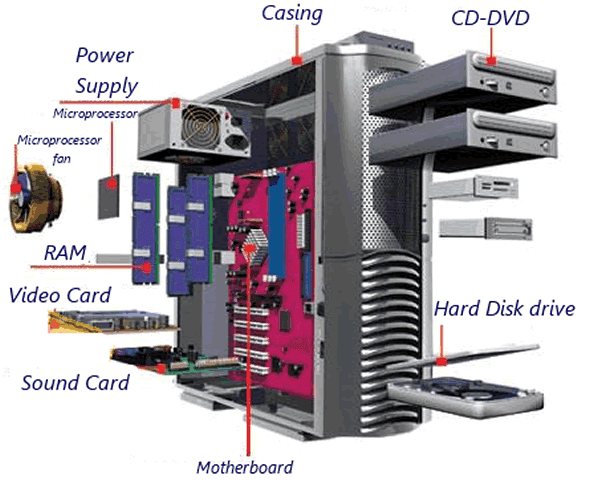In today's tech-driven world, the maker movement thrives on creativity, originality, and the willingness to explore. One asset that has become increasingly popular among creators, tinkerers, and budget-conscious tech aficionados is leftover electronic parts. These parts, often available at a fraction of their retail cost, provide an ideal chance to assemble, enhance, or recycle existing devices. Whether you're looking to create a custom gaming PC, create an remarkable tech project, or simply upgrade your existing setup, understanding how to navigate the leftover electronic parts market can open a world of potential.
However, not all excess components are designed equal. It's crucial to know what to look for to confirm you're making smart purchases in reliable parts. From video cards to mainboards, and even PSUs, each type of component comes with its own set of features. In this resource, we will investigate the ins and outs of purchasing surplus computer parts, including advice on identifying high-quality components, steering clear of potential problems, and finding the greatest deals. Join us as we research the world of surplus computer parts and discover how they can inspire your upcoming creative endeavor.
Buying Extra Electronics Items: A Comprehensive Manual
When exploring into the world of extra computer items, it's crucial to grasp what you're purchasing. The surge in the DIY movement has made surplus components increasingly sought-after for both amateurs and specialists seeking build or enhance their setups. Before making a buy, get acquainted yourself with the aspects of excess items, which can include a range from mainboards and central processing units to video cards and RAM. Being aware of your specifications beforehand will greatly improve your purchasing venture.
Quality is crucial when it comes to excess electronics components. Look for reputable suppliers or local sellers who focus in restored equipment. Check products closely, giving attention to evidence of deterioration and deterioration. Components such as logic boards and PSUs should be free of corrosion or issues. Superior extra items can save you money while still offering the performance you require.
Exploring the greatest bargains is yet another crucial consideration of purchasing extra components. Many platforms on the internet and in the real world provide attractive costs, but be cautious of unusually low offers that could signal poor quality or even fraudulent products. Always focus on purchasing from trustworthy sellers and use online forums or reviews to direct your choices. With thoughtful thought and an educated approach, you can competently navigate the extra sector for computer items.
Assessing Quality: Critical Elements to Consider
While purchasing surplus computer parts, the quality of the components is paramount for guaranteeing optimal performance in your endeavors. Start by examining the physical condition of the parts. Look for any visible clues of wear, such as scratches, dents, or corrosion, which may indicate previous misuse or inadequate care. It's also important to check the provenance of the components; recognizing their previous usage can provide insight into their remaining lifespan and reliability.
Next, think about the compatibility of the parts with your existing systems and intended applications. Study specifications thoroughly to avoid investing in components that may not mesh well with your hardware. Confirm that the parts meet the required standards of performance and efficiency for your specific needs, whether it's creating a budget gaming rig or enhancing networking equipment. Compatibility ensures that your surplus parts produce the expected results without creating unnecessary complications.
In conclusion, research the reputation of the suppliers or sellers. Reliable sources will often provide warranties or return policies that can secure your investment. Seek out reviews and feedback from other buyers to assess the trustworthiness of the seller. Engaging with the community through forums or social media can also assist you find advice on which sellers are known for high-quality surplus parts, thereby guaranteeing that you make smart purchasing decisions.
Boosting Worth: Tips for Intelligent Purchasing
When shopping for extra computer parts, it's important to perform your due diligence in advance. Acquaint oneself with the specifications and needs of the parts you are looking for. Understanding the differences between various models and brands can aid you find good bargains and avoid over spending for low-quality products. Additionally, utilize online resources, forums, and reviews to acquire knowledge into the trustworthiness of certain parts and vendors.
Search for trustworthy suppliers and marketplaces that specialize in used computer items. These sites often provide customer feedback, return policies, and warranties, which can provide an added layer of security to your buy. Find sellers who offer comprehensive explanations and images of their items, as this transparency can be suggestive of their reliability. Getting involved with the community through forums or local maker spaces can also guide you to hidden gems and exclusive deals.
Ultimately, be patient and alert. Prices for surplus parts can fluctuate, and a little timing can result in significant savings. Set signals for price drops or check back frequently for new listings. When you find a part that satisfies your needs, don’t wait too long; quality surplus items can sell quickly. By combining knowledge, careful sourcing, and proactive shopping habits, you can enhance the benefit of your surplus computer parts acquisitions.

